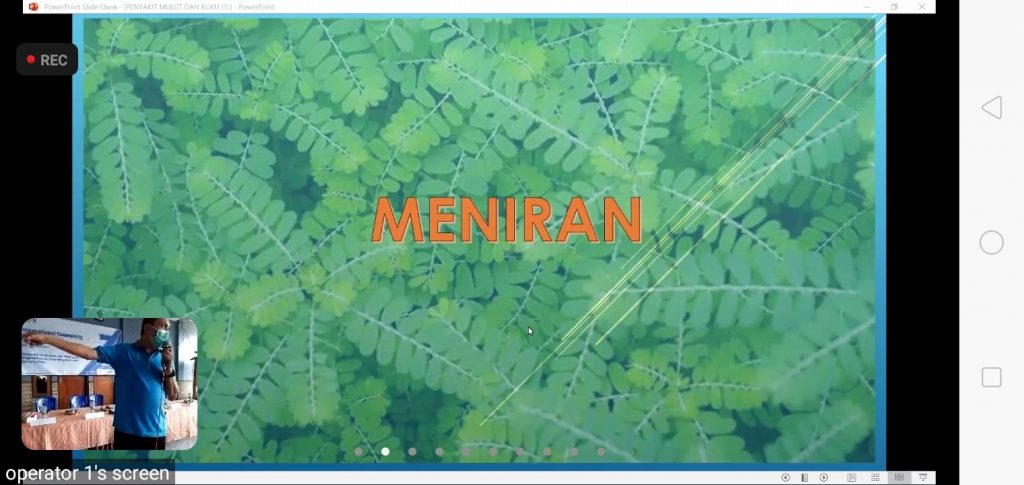UNAIR NEWS – Meniran plant or Phyllanthus urinaria has many benefits for health. One of them is for the foot and mouth disease (PMK) treatment in cattle and goats. Dony Crishmanto drh MSi, a D3 program lecturer in Veterinary Paramedic, Faculty of Vocational Studies (FV) Universitas Airlangga said that boiled meniran can be used as an alternative for treating PMK.
Drh Dony explained that the meniran plant contains various types of antioxidants useful for improving immunity. Furthermore, he said that cows or other livestock exposed to the virus would definitely survive as long as their metabolism was high. To increase metabolism, you can use meniran leaves.
“Healing still requires injections but to improve metabolism, meniran leaves can be used,” explained drh Dony at the International Community Engagement (ICE) seminar held by Veterinary Paramedic Student Association, Saturday, July 23, 2022.
Furthermore, drh Dony shared how to process meniran leaves to be used as an alternative treatment for PMK. Meniran leaves as much as 30-60 grams can be boiled with 3 cups of water with added brown sugar until it boils and reduced to one cup of boiled water or the equivalent of 250 ml. Meniran boiled water, he continued, can be given to sick livestock twice a day or once a day.
“Cows need 250 ml of meniran boiled water while goats need 150 ml of meniran boiled water,” he explained.
Treatment of lesions on cows’ teat
Then, drh Dony also explained the care and treatment of lesions on the teat of dairy cows with PMK. He revealed the lesion is an infection so farmers could use an iodine formula. Treatment of lesions on the teats can use teat dip solution containing iodine and glycerin. The solution is put into a beaker and the teats can be dipped before and after milking.
Furthermore, he also explained the treatment for wounds on the udder. Drh Dony recommends cleaning the udder wound if possible, then spraying it with the povidone-iodine solution on the wound.
“Usually, if there is an infection in a cow or other animal, there is a high fever, the temperature is high. Therefore, ladies and gentlemen, if there is an orderly or veterinarian, for injection with anti-pyretic, anti-inflammatory, anti-biotic that kills the bacteria and cures the infection. Cows do not eat due to the fever and inflammation,” he explained. (*)
Author: Wiji Astutik
Editor: Binti Q. Masruroh









